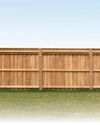
Generators are becoming must-have tools for homeowners, whether for emergency backup or portable electricity. While shopping, you'll see a growing category of power packs that are versatile, affordable and easy to use. But they're not all the same, and finding the right one will require you to answer a few questions.
What can they do? Where will you use one? What will you plug in? How much should you spend? We looked at a few options and tested one on a job site to help you choose the right generator for your needs.
GENERATOR OR POWER STATION?
They all get called "generators," but that's not accurate. A generator uses a gas or diesel engine to make electricity. And noise. More power means more noise-that's fine on a work site but less so when you're camping or at home.
Then you have power inverter-sportable tools that convert direct current (DC) from lithium-ion batteries into alternating current (AC). You recharge these tools-they don't generate power, they store it-by plugging them into a wall outlet, a solar panel or even your truck's DC outlet. The recharge time can be hours.
TESTED
We took a GoalZero Yeti 1500X power station on a two-week backyard build. We had access to one wall outlet on the site, but with many battery chargers, a plug-in table saw and miter saw, our lighting equipment, plus cell phones and laptops, that single outlet couldn't do it all. Throughout the build we would plug in the Goal Zero at night to recharge, then unplug it during the day so it could be our power source for battery chargers, tools and phones. Charging cell phones is a nice convenience, especially with the USB outlets, but it's not much of a test of this unit's power.
This story is from the {{IssueName}} edition of {{MagazineName}}.
Start your 7-day Magzter GOLD free trial to access thousands of curated premium stories, and 9,000+ magazines and newspapers.
Already a subscriber ? Sign In
This story is from the {{IssueName}} edition of {{MagazineName}}.
Start your 7-day Magzter GOLD free trial to access thousands of curated premium stories, and 9,000+ magazines and newspapers.
Already a subscriber? Sign In

7 Bicycle Maintenance Tips
Keep your bike in tiptop shape and ride safe!

SETTING FENCE POSTS WITH EXPANDING FOAM
Any fence builder knows you need strong posts for a strong fence, and that means backfilling the postholes with a dense, hard material other than dirt.

PEBBLE MOSAIC STEPPING STONES
COLLECT SOME RIVER ROCK AND MAKE YOUR OWN UNIQUE STEPPINGSTONE PATH

EARTH-FRIENDLY WEED KILLERS
HEALTHIER CHOICES FOR HUMANS AND THE ENVIRONMENT

DIY! HYDROPONIC GARDEN
FRESH VEGETABLES AT YOUR FINGERTIPS

GROW MINI VEGETABLES
GROW A GARDEN IN A TINY SPACE!

BUILD A VERTICAL GARDEN
TIME TO GROW UP!

MODERN WATER FOUNTAINS
A SPLASH OF PEACE FOR YOUR PATIO

9 ALTERNATIVE USES FOR SAWDUST
Every fully stocked wood shop has a table saw. You can usually find a pile of sawdust under it, even if it's used only occasionally. If a shop has a belt sander or band saw, there's probably another pile of finer sawdust under that. Even people without stationary tools have sawdust accumulation on their workbenches.

INSULATE WITH FOAM
IT'S A GREAT ALTERNATIVE TO FIBERGLASS